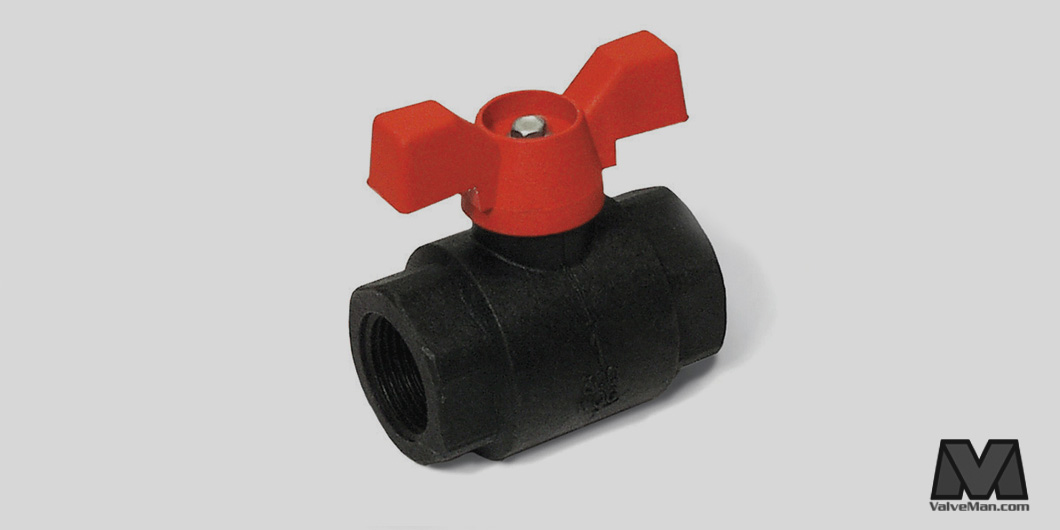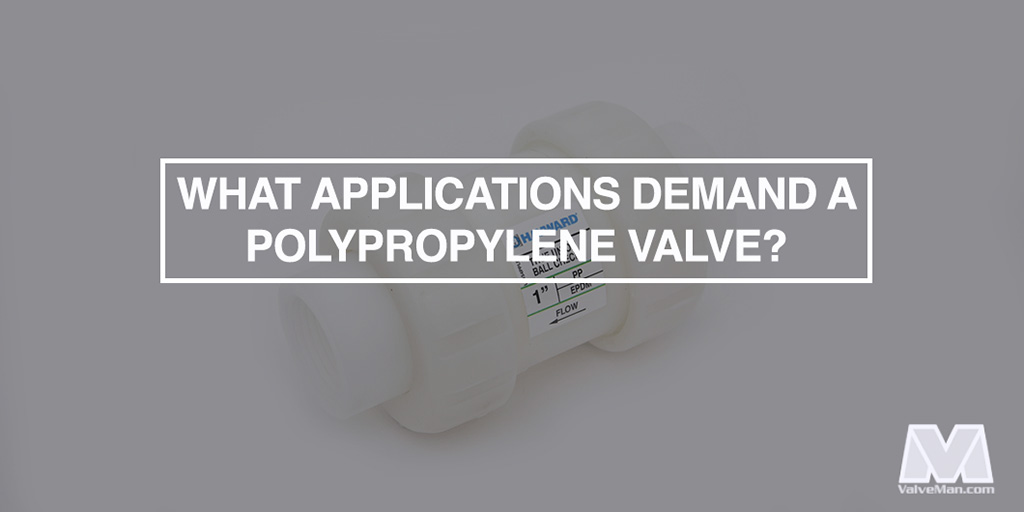Polypropylene Valves
Polypropylene valves are useful additions to many different systems. They have many excellent uses and have advantages when used in many different industries. Let’s take a closer look at these fittings and how they can fit into your current or next project.

What is a Polypropylene Valve?
A polypropylene valve is any kind of valve that consists of polypropylene. Polypropylene is a type of thermoplastic polymer that has many beneficial properties. Polypropylene valves are not a specific type (i.e., ball valves or butterfly valves) of valve, but any valve made from this one specific material.
What Are the Common Applications of Polypropylene Valves?

Because the polypropylene valve is so versatile, it has many different applications. Some of the industries and uses where you may encounter these valves include the following:
- Chemical processing - Chemical processing plants often make use of polypropylene valves due to their chemical resistance and ease of use.
- Waste and wastewater treatment - Treatment plants for waste and wastewater may use polypropylene valves to help release chemicals at appropriate times and stages in the process.
- Industrial manufacturing - Industrial manufacturing plants may use this kind of valve for various different reasons. This is mainly because many different chemicals and fluids play a part in this type of manufacturing process.
- Food and beverage processing - Food and beverage processing plants use polypropylene valves due to their hygienic nature. They’re easy to clean, making them great for use with everything from liquids to slurries and pastes.
- Petrochemical industry - The petrochemical industry relies on the cleanliness and chemical resistance of polypropylene valves in the creation of petroleum products. They may also use stainless steel.
- Agriculture - In the agricultural industry, polypropylene valves play a pivotal role in many types of irrigation systems. Their resistance to UV and high temperatures makes them ideal for outdoor use.
- Pharmaceutical industry - Because polypropylene valves are chemical-resistant and easy to sanitize, they’re a perfect fit for the pharmaceutical industry.
What Are the Advantages of Using Polypropylene Valves?
Polypropylene valves come with a range of advantages. Let’s take a closer look at why you may want to consider these fittings for your next project. Some of the advantages include the following:
- They’re lightweight, resulting in affordability, as well as ease of use and installation.
- They’re incredibly cost-effective since they’re affordable and have reasonably low prices.
- They have resistance to moderately high temperatures, meaning they’re ideal for a range of different industrial processes.
- They offer electrical insulation, which makes them an important product in cases where electrical conductivity needs to be avoided.
- They’re resistant to impact, which means they do well in applications where regular bumps and impacts may be experienced (i.e., agricultural irrigation).
- They’re resistant to UV, making them ideal for use in outdoor applications, especially those where the valve may spend considerable time in direct sunlight.
Frequently Asked Questions (FAQs)
How Do I Select the Right Polypropylene Valve for My Application?
Whether you need to buy polypropylene valves or butterfly valves for your application, you need to know what you’re looking for before you make the purchase.
To help you do this, there are a range of things you can consider or questions you can ask yourself. Some of these include the following:
- What will you be transporting using the system that the valve is for?
- How big are the piping and fittings on the rest of the application?
- Does the valve need to match the other piping, or is there some slight variation where you’re planning on using it?
- Does your application have any specific or unique temperature requirements?
- What is the flow rate and pressure rating required by your application?
- Do you need to be able to control the valve remotely, or is a manual valve okay?
How Should Polypropylene Valves Be Maintained?
Polypropylene valves don’t generally have high maintenance requirements. However, there are a few basic valve maintenance steps you can take to help ensure your valve’s efficiency and longevity:
- Inspect the valve regularly for leakage, cracking, or other signs of wear and malfunction.
- Keep the valve and its surroundings clean.
- Some valves may require regular lubrication to keep them functioning as they should.
- Check the inside of the valve regularly to ensure that there hasn’t been a buildup of debris.
- Test the valve regularly to ensure that its seal maintains its integrity and that the valve is still in full working order.
Where Can I Buy Polypropylene Valves?
You can get your polypropylene valves right here at ValveMan. We have a wide range of valves available in different sizes and materials. From PVC to stainless steel, butterfly valves to check valves, manual valves to those with electric actuators, we have it all.
Everything You Need at ValveMan
If you need help selecting the kind of valve that will work best for your application, please contact us. We will be happy to help you choose the best valve for your upcoming project.

